Continental Congress
Discover how the Continental Congress shaped America's journey to independence and created a new nation!
What Was the Continental Congress?
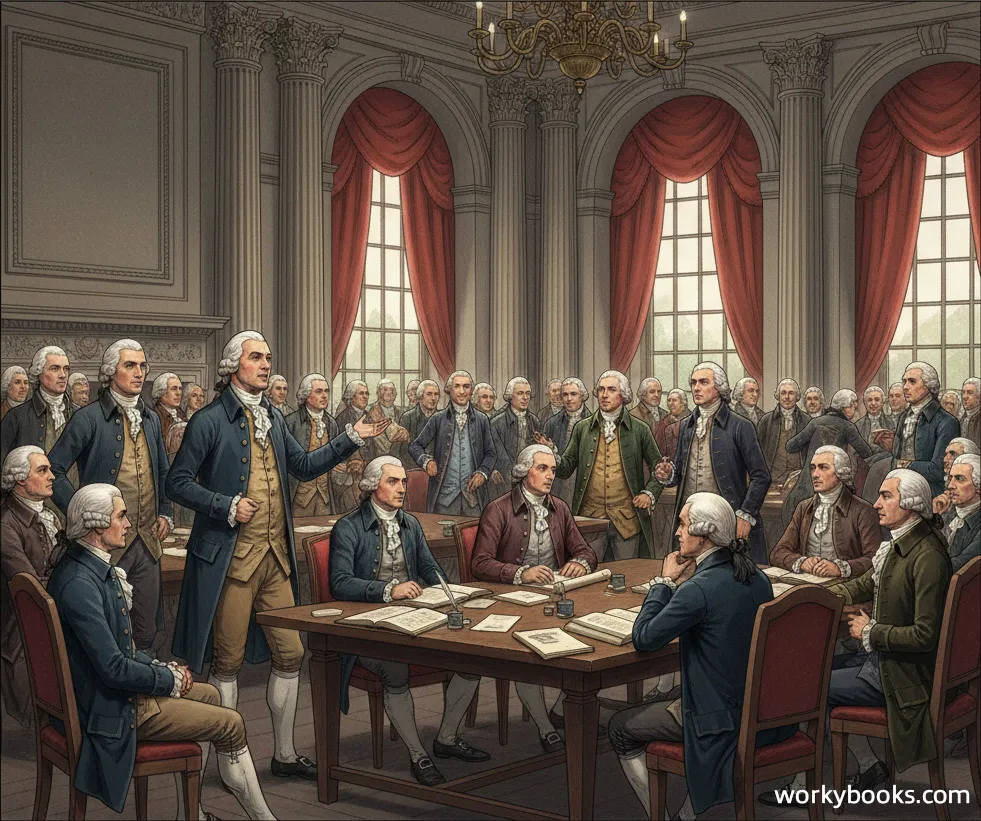
The Continental Congress was a series of legislative bodies that met in the American colonies before and during the American Revolution. It served as the national government for the colonies as they moved toward independence from Britain.
Think of the Continental Congress as the first "team meeting" of the American colonies. Just like a sports team needs to come together to make a game plan, the colonies needed to come together to decide how to respond to British laws they felt were unfair.
Did You Know?
The Continental Congress was the first time representatives from different colonies worked together as Americans rather than as separate colonies!
First Continental Congress
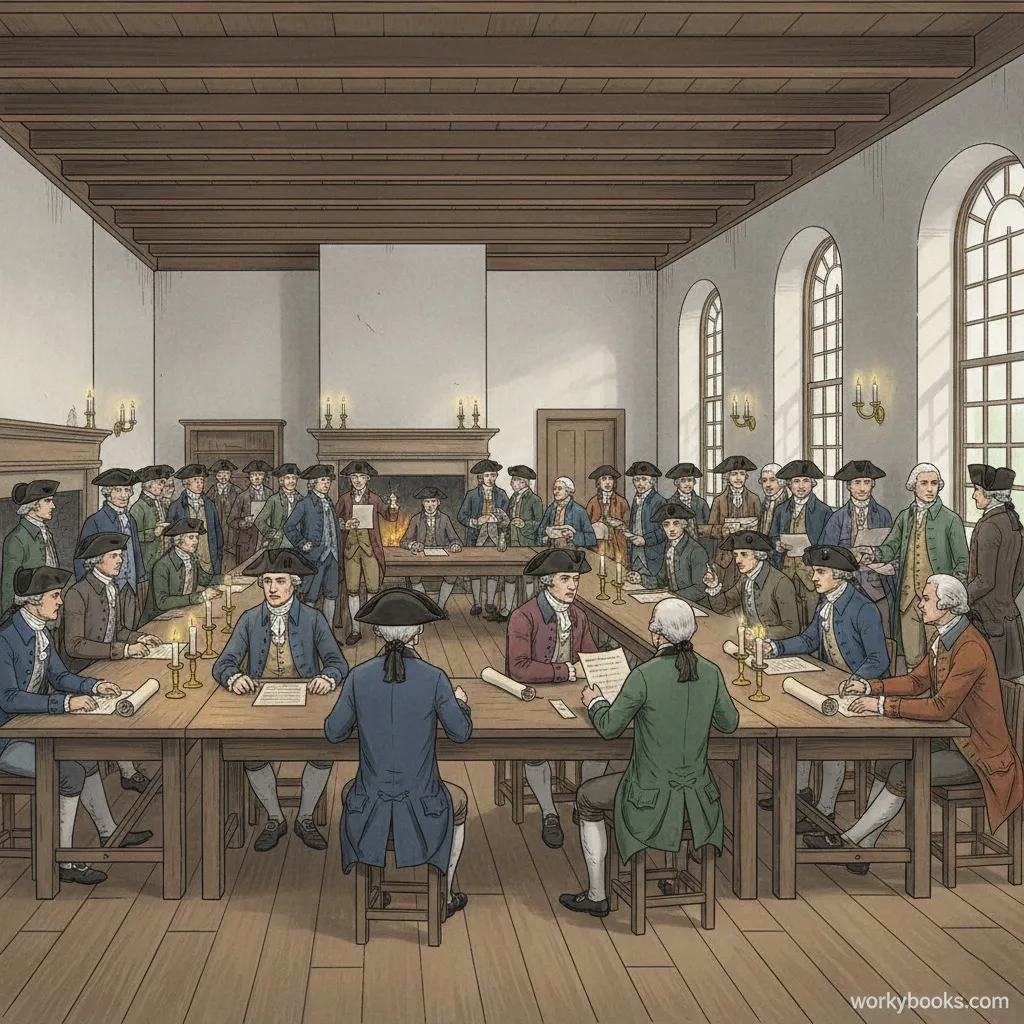
The First Continental Congress met from September 5 to October 26, 1774, in Philadelphia, Pennsylvania. Delegates from twelve of the thirteen colonies (Georgia did not send representatives) gathered to respond to what they called the "Intolerable Acts" - harsh laws passed by the British Parliament.
During this meeting, the delegates decided to:
- Boycott British goods (stop buying them)
- Send a list of complaints to King George III
- Plan to meet again if their concerns weren't addressed
The First Continental Congress was important because it showed that the colonies could work together and stand up for their rights as British citizens.
Second Continental Congress
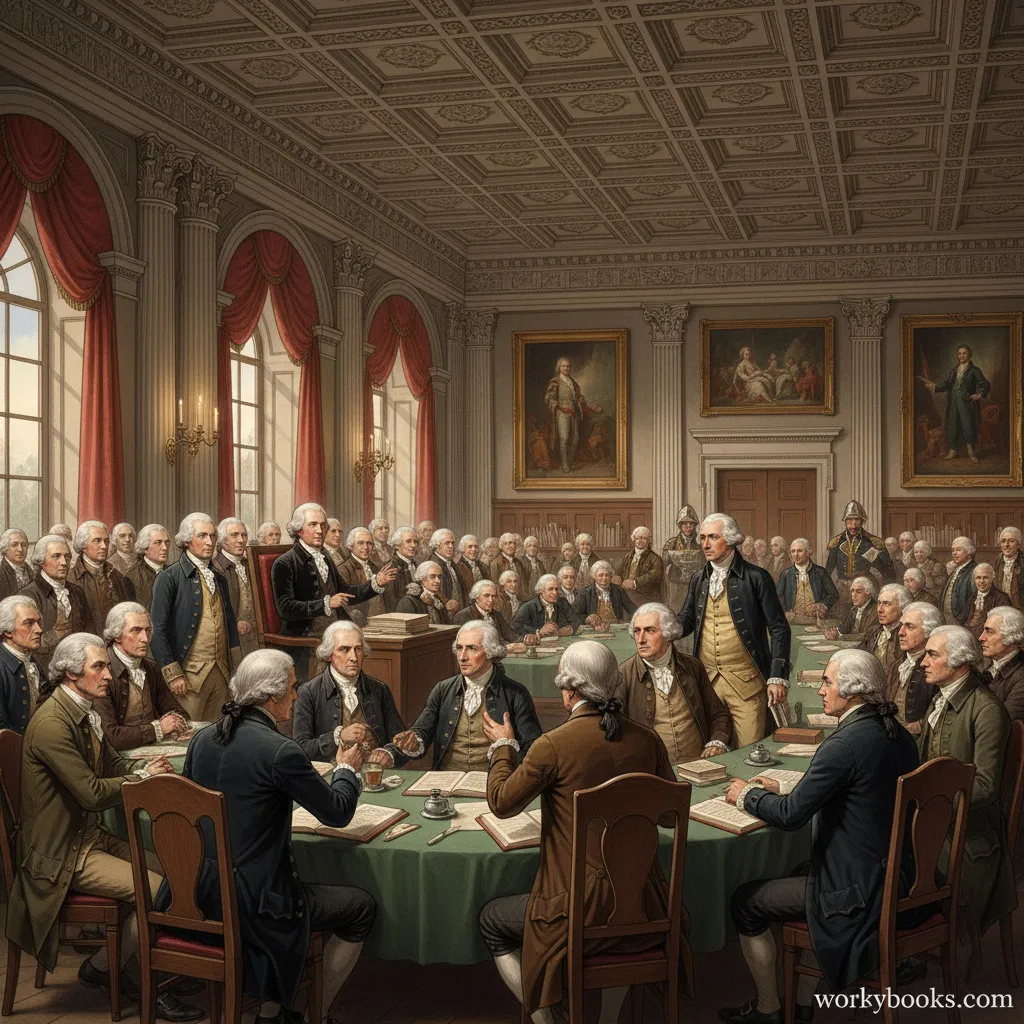
When King George III didn't respond favorably to their concerns, the colonies called the Second Continental Congress, which began meeting on May 10, 1775. This time, all thirteen colonies sent representatives.
The Second Continental Congress became the national government during most of the American Revolution. It had to make many important decisions, including:
Creating an Army
Established the Continental Army with George Washington as commander
Printing Money
Issued paper money to pay for the war effort
Managing Foreign Relations
Sent diplomats to other countries to seek support
Declaration of Independence
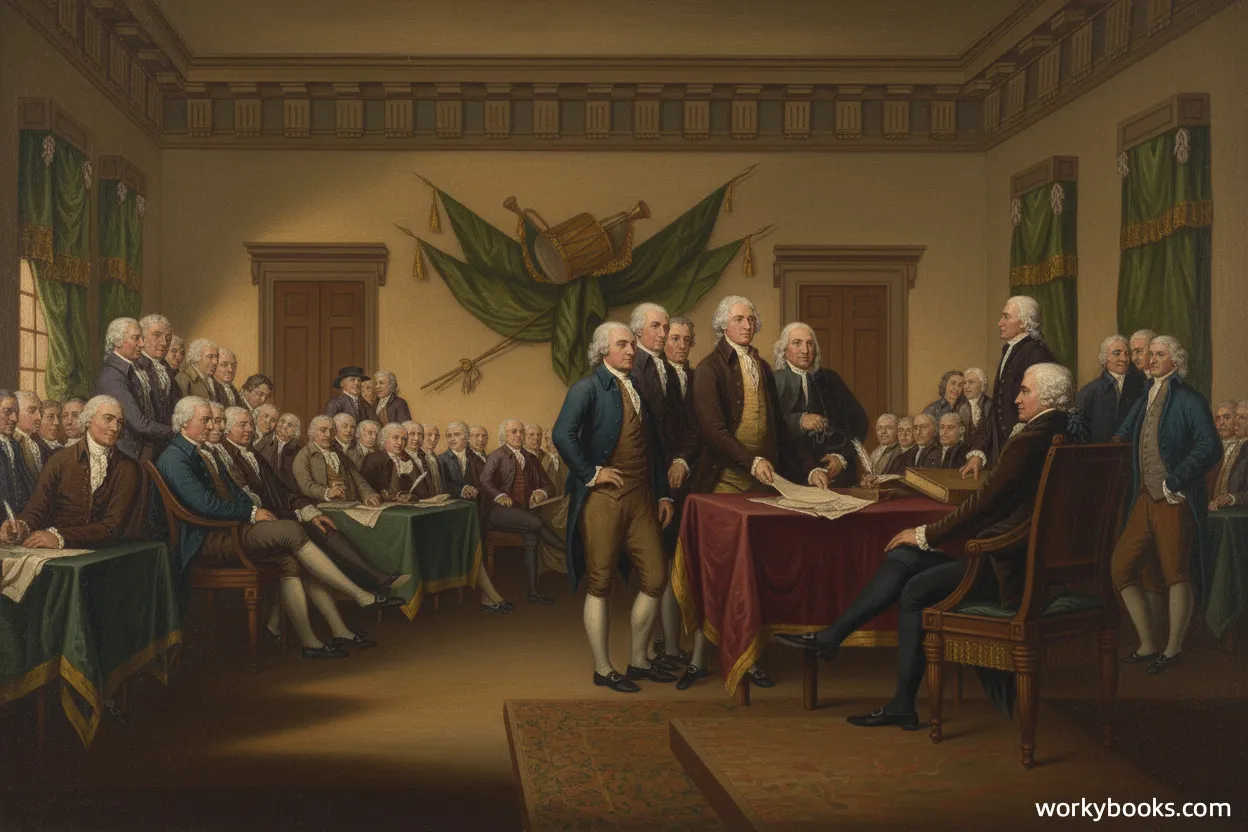
One of the most important actions of the Second Continental Congress was approving the Declaration of Independence on July 4, 1776. This document announced that the thirteen American colonies were now independent states, no longer part of the British Empire.
A committee of five delegates, including Thomas Jefferson, John Adams, and Benjamin Franklin, was appointed to write the Declaration. Thomas Jefferson wrote most of the document, which explained why the colonies had the right to form their own government.
Key Ideas in the Declaration
- All people have rights that cannot be taken away
- Governments get their power from the people they govern
- People have the right to change a government that doesn't protect their rights
Articles of Confederation

The Articles of Confederation document that served as the first constitution of the United States
During the Revolutionary War, the Second Continental Congress created the Articles of Confederation, which was the first constitution of the United States. The Articles were approved by Congress in 1777 and officially took effect in 1781 after all thirteen states ratified them.
The Articles of Confederation created a "firm league of friendship" between the states, but it gave most power to the individual states rather than to the national government. This created problems because:
- The national government couldn't collect taxes
- There was no president to enforce laws
- Each state had one vote, regardless of population
- Changing the Articles required all 13 states to agree
These weaknesses eventually led to the creation of our current U.S. Constitution in 1787.
Articles of Confederation
Congress approved the first U.S. constitution, creating a loose alliance of states
Articles Take Effect
The Articles of Confederation became the official government after all 13 states ratified them
Important Delegates
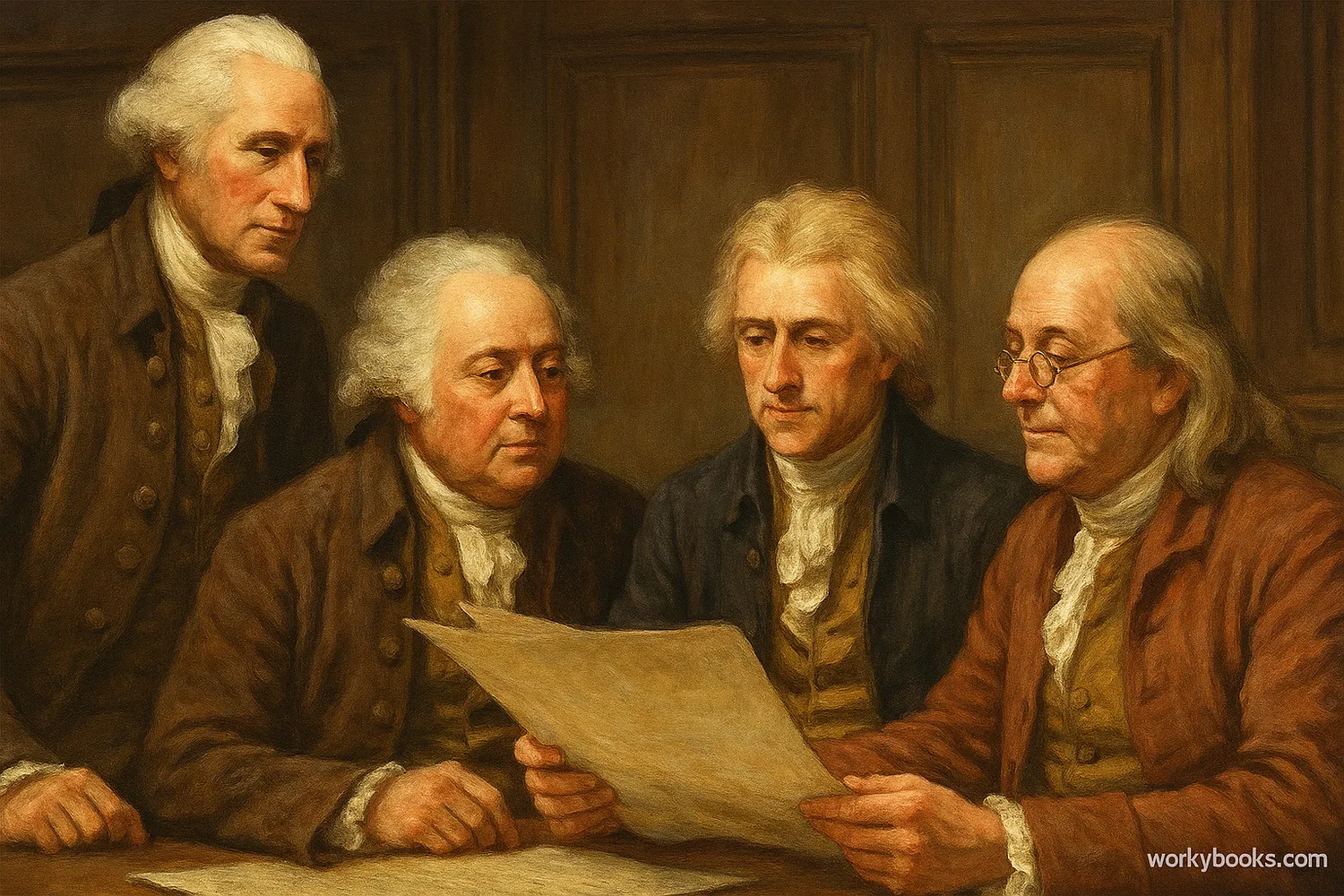
Many important leaders from the American colonies served as delegates to the Continental Congress. These individuals played crucial roles in shaping the new nation:
John Hancock
Served as President of the Second Continental Congress; first to sign the Declaration
John Adams
Strong advocate for independence; served on many important committees
Thomas Jefferson
Primary author of the Declaration of Independence
Benjamin Franklin
Elder statesman who helped gain French support for the Revolution
Other notable delegates included Samuel Adams, Patrick Henry, Roger Sherman, and Robert Livingston. These leaders came from different colonies but worked together for the common cause of American liberty.
Continental Congress Quiz
Test your knowledge about the Continental Congress! Answer all 5 questions to see how much you've learned.
Frequently Asked Questions
Here are answers to common questions about the Continental Congress:
Continental Congress Trivia
Discover amazing facts about the Continental Congress!
Secret Meetings
The First Continental Congress met in secret! Delegates were concerned that the British government might try to stop their meeting, so they kept their discussions private.
Famous Signature
John Hancock signed the Declaration of Independence with such a large signature that his name became a synonym for "signature."
Long Journeys
Some delegates traveled for two weeks or more to reach Philadelphia for the Continental Congress, riding on horseback or in carriages over rough roads.
International Recognition
The Second Continental Congress sent Benjamin Franklin to France, where he successfully convinced the French to support the American cause against Britain.





